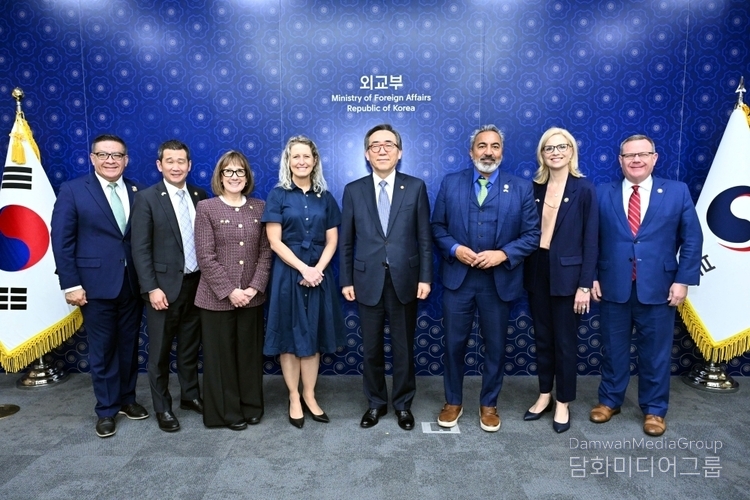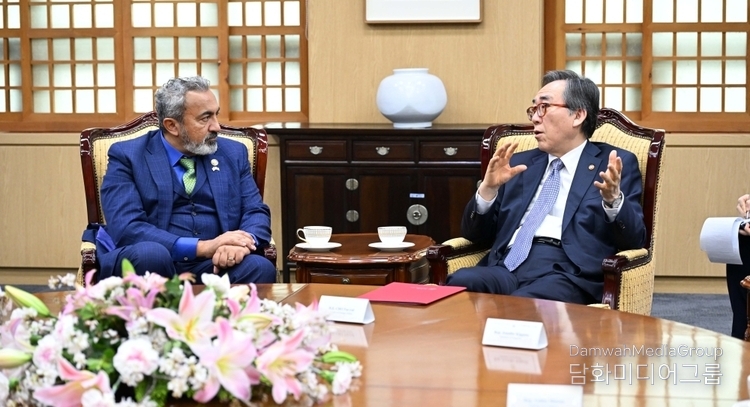By Diplomacy Journal Kayla Lee
Foreign Minister Cho Tae-yul met with a seven-member delegation of the U.S. House of Representatives Congressional Study Group on Korea (CSGK), co-chaired by Representatives Ami Bera and Jennifer Kiggans on April 14.
They exchanged views on issues of mutual interest, including the U.S.-ROK alliance and economic cooperation, and regional affairs, including military cooperation between Russia and North Korea.

Minister Cho welcomed the bipartisan House of Representatives CSGK delegation to South Korea and recognized that the CSGK has been a strong supporter of the U.S.-ROK alliance since the inauguration of the 119th U.S. Congress in January.
In particular, he expressed his appreciation for the trust and support that the U.S. government and Congress have shown to Korea in recent years as the country overcomes political uncertainty and enhances democratic resilience.
The delegates of the U.S. House of Representatives group unanimously praised Korea's democratic resilience and said that Congressional support for the U.S.-ROK alliance is bipartisan and very strong, and they see a very bright and positive future for the alliance.
They also emphasized that the Indo-Pacific is the most important region in the 21st century and that the U.S. will not retreat from the region, and they will continue to work to further strengthen the alliance, which plays a vital role in peace and stability in the region, and to broaden support in the U.S. for the alliance and South Korea-U.S.-Japan cooperation.

On the other hand, Minister Cho introduced the recent establishment of the Korea-U.S. Parliamentary Alliance by the Korean National Assembly, which demonstrates the bipartisan will of the Korean National Assembly to strengthen the U.S.-ROK alliance, and emphasized that the U.S. Congress will respond positively to strengthen parliamentary exchanges.
Representative Ami Bera welcomed this and responded that the U.S. Congress is also actively working to institutionalize bilateral congressional exchanges.
Minister Cho emphasized that the Republic of Korea is an important investor and partner in the U.S. economic relationship that enhances mutual benefits rather than being a one-sided beneficiary, and called for continued interest from the U.S. Congress to further strengthen economic cooperation in areas such as shipbuilding, energy, high technology and artificial intelligence.
Citing the concerns of Korean companies due to the discussions on amending and repealing the IRA and the Semiconductor Act, Cho called on the U.S. Congress to continue to support stable investment conditions for companies, secure professional visas for smooth business operations, and expand science and technology cooperation, including the removal of sensitive country designations.
The delegation noted that cooperation with South Korea in areas such as shipbuilding, semiconductors, and artificial intelligence is becoming increasingly important as global competition for future prosperity intensifies, and pledged to raise the issues suggested by Minister Cho internally and to explore various ways to further strengthen bilateral cooperation.







